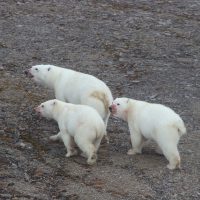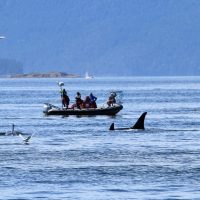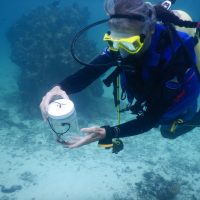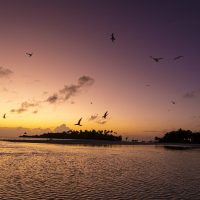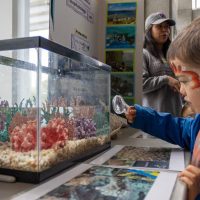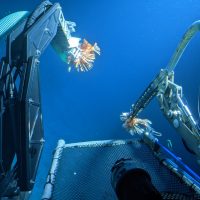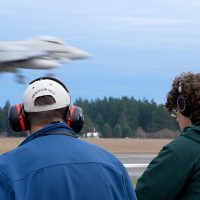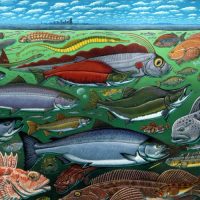Filter Results
SAFS hosts 20th working meeting of the Polar Bear Specialist Group, co-chaired by Kristin Laidre
A meeting of the IUCN/SSC Polar Bear Specialist Group (PBSG) was held at SAFS on 10-14 June 2024, co-chaired by Professor Kristin Laidre.
Read moreBest practices in marine mammal research: developing a toolkit for sample collection and preservation
Over the last two decades, there has been huge growth in the availability of different ‘omics methods used to study marine mammals. A new paper published in Marine Mammal Science, involving 19 scientists from around the globe, has laid out best practices for collecting and preserving marine mammal biological samples in the ‘omics era.
Read moreSmall but mighty: studying cryptobenthic fishes on Tonga’s reefs
Swimming around tropical coral reefs in a colorful array are an ever-changing multitude of fishes, some in schools of hundreds, others in pairs, and ones that prefer their own company. These are the fishes divers see on a heathy coral reef, but they are often only half of the diversity found in the reef’s fishes. The “hidden half” are the cryptobenthic fishes.
Read moreA haven for research in the South Pacific: Tetiaroa
From microplastics to seabirds, and everything in between, Tetiaroa offers new insights on tropical ecosystems for UW Professors and researchers.
Read moreRecord attendance at this year’s UW Aquatic Sciences Open House
The number of people diving into aquatic sciences during the 2024 Open House on 18 May more than doubled this year, with 1,200 visitors of all ages joining us for a day of hands-on activities.
Read moreClimate change and Pacific oysters: what are the impacts of heat stress?
Eric Essington, UW Biology senior, has been working on his independent research project in the Roberts Lab for the past year, looking into a familiar hard-shelled mollusk: the oyster. Why? To simulate temperature changes associated with climate change and explore the impact on Pacific oysters.
Read moreLionfish research in the Caribbean waters of Curaçao
In a lot of ways, deep reefs are understudied. Too deep for divers to reach and only accessible by submarines, this zone of ocean habitat is often overlooked. We spoke to SAFS master’s student, Sarah Yerrace, about her research focused on one thing in particular: lionfish.
Read moreGrist visits the Wood Lab: Nature can’t run without parasites, so what happens when they start to disappear?
As part of a video series profiling the science and scientists behind some of the environment’s most unexpected research, Grist visited the Wood Lab at SAFS, to find out about Chelsea Wood’s parasite research.
Read moreNavy Growler jet noise over Whidbey Island could impact 74,000 people’s health
According to new research published by SAFS grad student, Giordano Jacuzzi, military aircraft noise from Naval Air Station Whidbey Island presents a substantial risk to public health.
Read moreLeave the imported shrimp, take the local bivalves: sustainable seafood choices
SAFS Assistant Professor, Jessica Gephart, speaks to KUOW’s Kim Malcolm about her research and why seafood choices matter.
Read more